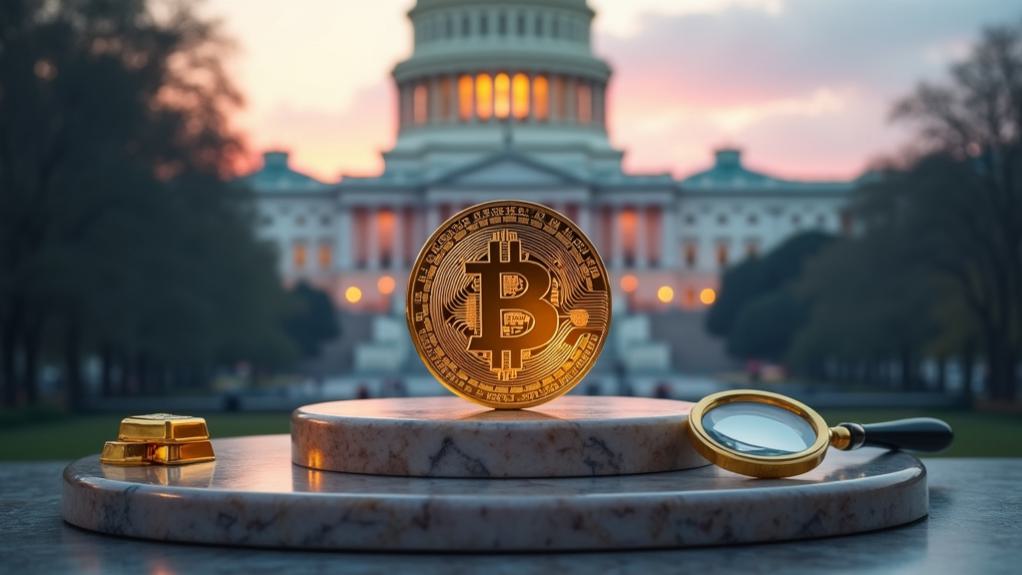MicroStrategy’s Bitcoin evangelist Michael Saylor is at it again, this time setting his sights on Uncle Sam’s wallet. In a bold proposal presented at the White House Crypto Summit on March 7, 2025, Saylor urged the government to acquire between 5-25% of the total Bitcoin supply. Not exactly a modest request.
The plan, outlined in his dramatically titled “A Digital Assets Strategy to Dominate the 21st Century Global Economy,” calls for consistent Bitcoin purchases between 2025 and 2035. His goal? Establish a Strategic Bitcoin Reserve. Because apparently the gold in Fort Knox is so last century.
Saylor’s projections are nothing if not ambitious. By 2045, he claims this reserve could generate over $10 trillion annually and potentially create $16-81 trillion for the US Treasury. That’s trillion with a “T.” He’s positioning this as a debt solution wrapped in a digital asset strategy.
Surprisingly, the Trump administration didn’t laugh him out of the room. President Trump actually signed an executive order establishing a Strategic Bitcoin Reserve, creating a Digital Asset Stockpile from seized cryptocurrencies. Treasury and Commerce departments are now developing “budget-neutral” acquisition strategies.
The government already holds an estimated 198,109 Bitcoin valued at over $19 billion, though some sources suggest the actual number might be closer to 112,000 BTC. An official audit is underway to determine the accurate count. Saylor has emphasized a never sell policy as fundamental to maintaining the long-term value of these bitcoin holdings.
With Bitcoin trading at $83,805.93 as of March 19, 2025, experts are projecting prices could reach $180,000-$250,000 by year-end. The recent 30% correction from Bitcoin’s all-time high of $109,287 represents a typical market cycle pattern that has occurred following previous halvings. The price rebound is largely attributed to institutional investment providing stability to the cryptocurrency market. Convenient timing for Saylor’s proposal.
Critics point to Bitcoin’s notorious price volatility, risks of market manipulation, and security challenges. There’s also the small matter of how this impacts Bitcoin’s decentralized nature. When the government holds a quarter of all Bitcoin, is it still the anti-establishment rebel currency?
One thing’s certain – if the US government follows Saylor’s advice, the value of his own extensive Bitcoin holdings would skyrocket. Coincidence? Yeah, right.





